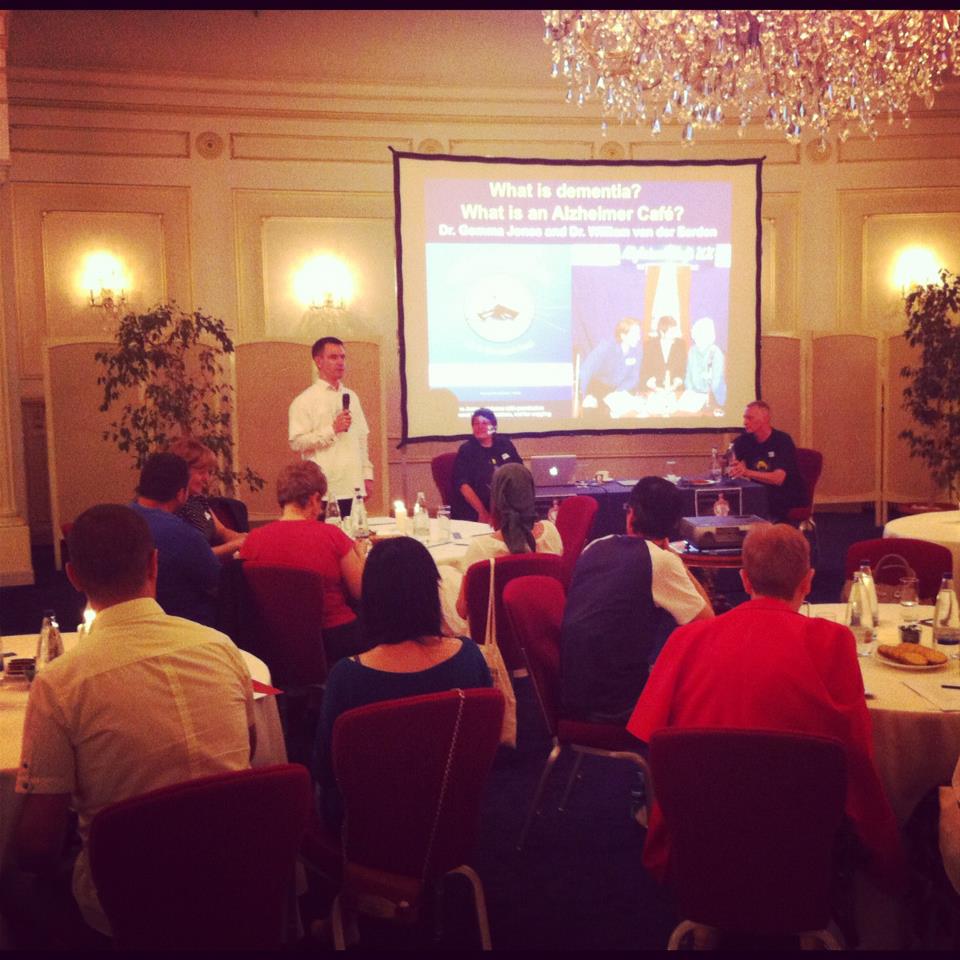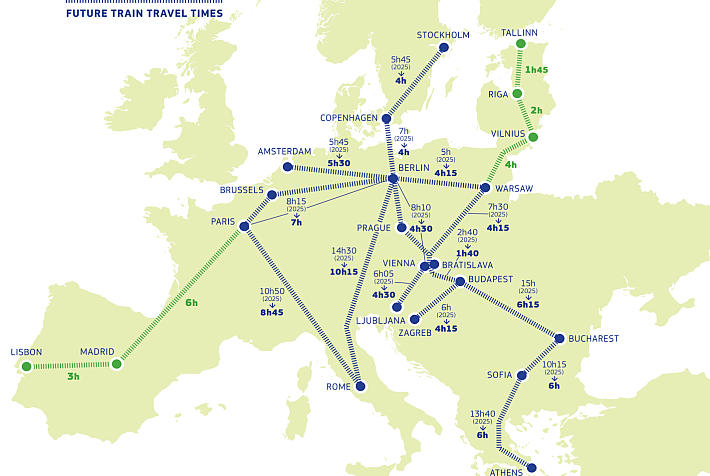Comment: Alzheimer Cafe concept, close to reality in Romania

 Guest writers Dr. Gemma Jones and Dr. William van der Eerden write about the first Alzheimers Cafe in Romania and about about how the cafe helps patients and their families.
Guest writers Dr. Gemma Jones and Dr. William van der Eerden write about the first Alzheimers Cafe in Romania and about about how the cafe helps patients and their families.
A group of business people and Romanians, together with the Romanian Alzheimer's Society arranged for the first demonstration of an Alzheimer Cafe (AC) in Romania, in Bucharest, on May 11. An AC is a new type of support that takes the form of a monthly gathering for the purpose of education about dementia, support and social contacts.
It is for people with all types of dementia and is the first type of support that brings together people with dementia, their family carers, professionals and volunteers. The AC model was developed in the Netherlands in the late 90s. This first demonstration of Alzheimer Cafe, was presented by Dr. Gemma Jones from the UK and Dr. William van der Eerden from the Netherlands. They also held a a Master Class for dementia specialists about developing dementia-care in Romania. It is the hoped that the Alzheimer Cafe will become a permanent form of post-diagnostic dementia-care support in Romania, and spread to other cities.
The number of people with dementia in Romania seems to be similar to the numbers for other European countries, which is estimated at 4-5 percent of those over age 65, 10 percent of those over age 75, and about 15 percent of those over 85. Alzheimer's is the most frequently occurring type of dementing illness, but there are thought to be more than 100 types of dementia. Alzheimer's disease occurs in about 60 percent of those with dementia, hence it is the best known.
Dementia is defined as a syndrome - caused by any of a large number of conditions that lead to irreversible difficulty with short-term memory. People affected can also have difficulties with one or more of the following abilities: attention, logical thinking, problem solving, language ability, visuo-spatial and visuo-perceptual abilities, performance of known daily routines/ tasks, uncharacteristic mood changes, and 'out of character' behavior.
Contrary to what the name suggests, an Alzheimer Cafe is more than a social gathering. It is intended to offer support to people from the moment they know the diagnosis. It's aim are to decrease stigma, reduce social isolation, provide dementia care and psychological education about how to live with it, by offering on-going support - from volunteers, carers, and professionals. Having health care professionals present at a Cafe helps those who otherwise would not be accessible to the people affected or their family carers.
Many people with dementia, and their families, start to hide when they have the illness. Nobody asks to have this illness and therefore no one should hide. It could happen to anyone and it is not contagious. Persons with dementia are the focal point of the cafe talks and they are included in discussions in the presence of family members, friends and others.
When affected by dementia, the quality of life can deteriorate tremendously for the patient and for the family. In most cases, long-term memories usually remain intact while short-term memories become sketchy. The loved one may forget conversations from the last minutes or days but recall the past vividly. He or she may repeat questions that were already answered. The disease also disrupts speech, so those affected may encounter difficulties in remembering common words. Dementia can cause disorientation and behavior changes and people with dementia may become lost in familiar places. Mood swings and poor judgment are also common, as is difficulty maintaining activities of daily living such as shopping, housework, dressing and self-care.
Dementia takes a different path in every person. In some people the symptoms worsen quickly, leading to severe memory loss and disorientation within a few years. In others, the changes may be more gradual, with the disease taking more than 20 years to run its course. A diagnosis of any form of dementia is very upsetting, and often denied intially. Affected people face avoidance and stigma just like the people with cancer about 30 years ago. When accepted, the most obvious issues to be resolved are the legal and medical and care aspects. Someone has to assume the responsibility of the affected person, from the management of their legal and financial affairs to daily care and medication. And then to take time to deal with the pain inside of grieving slowly for the loss of a loved-one, and the challenge of sustaining good care.
The first AC opened its doors in Holland in 1997. Dr. Bère Miesen, a Clinical Psychologist who has been working with people with dementia, their families and professionals since 1969, focused on the conflicts that can sometimes be engendered by dependency, fear and sustained closeness, and started the Alzheimer Cafe concept to create a ‘safe place’ - for everyone together. The idea has spread and now Alzheimer Cafes can be found in 14 countries, including 200 in Holland and 38 in the UK.
It was noticed that talking about the illness, even between partners, was often taboo. Therefore making dementia a subject that can be openly discussed and providing information about the condition and its consequences play a very important part in developing acceptance of the illness.
Besides the socializing, topics relating to dementia, especially the emotional aspects of the illness which are rarely spoken about, are presented and discussed knowledgeably, sensitively and openly with people with dementia and their carers/caregivers – with the help of professionals and volunteers.
Alzheimer Cafes are a relatively inexpensive form of care intervention, and free to everyone who attends. Costs are covered by donations, therefore the Alzheimer Cafe relies heavily on voluntary input from Professionals and volunteers. The Alzheimer Cafe has been a life-saver to many families already, as evidenced by the evaluations, and the increasing numbers of people attending.
By Gemma Jones and William van der Eerden, guest writers
Dr. Gemma Jones is an internationally known speaker and writer about dementia care, a consultant on the design of dementia-friendly care environments, and founding Chair of the Alzheimer Café UK. Her research interests are in changes in sensory and time perception in people with dementia and the new care interventions that are possible with improved understanding of dementia.
Dr. William van der Eerden is a Dutch Nursing Home Medicine (geriatrician) physician with qualifications in Rehabilitation Medicine and Palliative Care Medicine. He is head of a Stroke unit, contributor to the design and implementation of the linked pathways and protocols for Dementia, Falls, and Stroke - used in the Amsterdam area.











